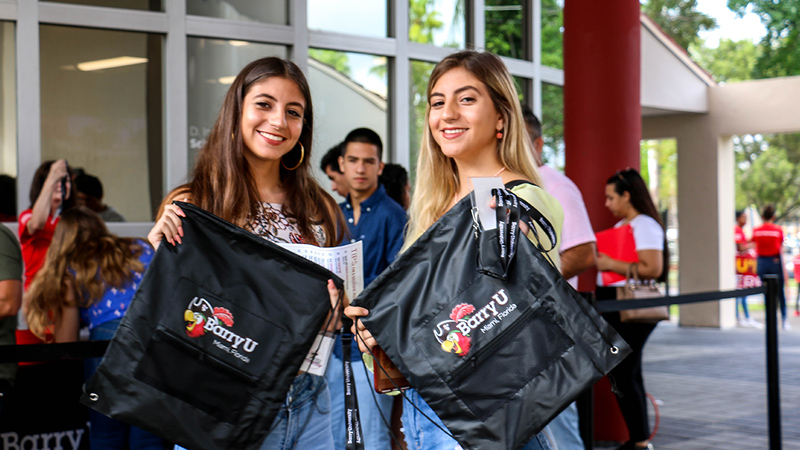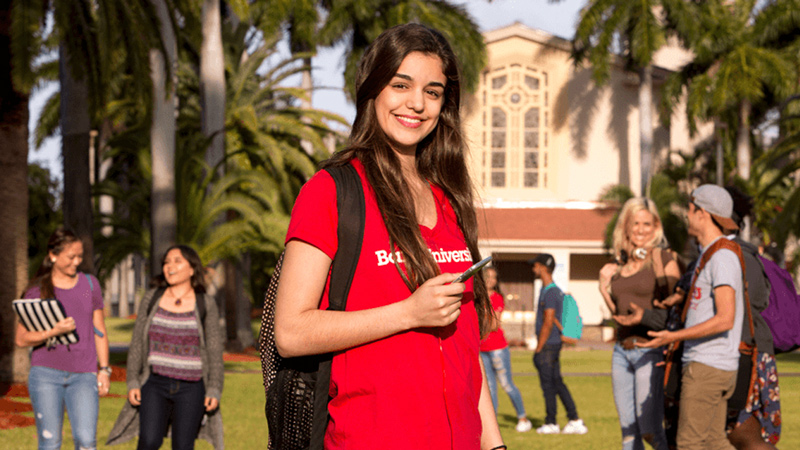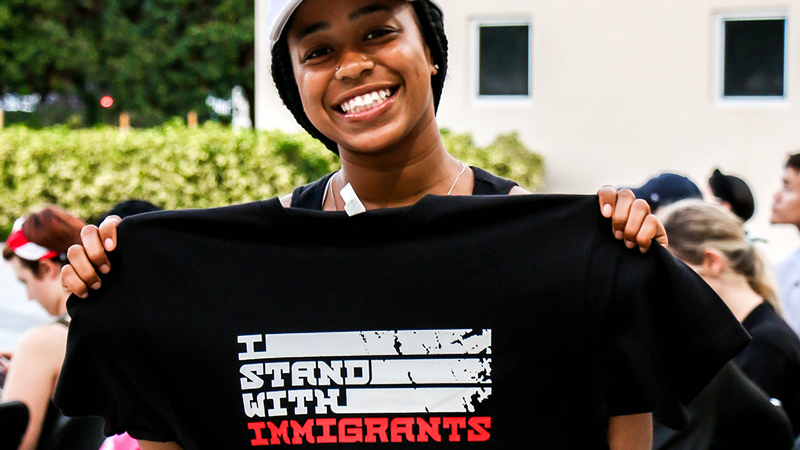Following national trends in healthcare, Barry University’s new College of Health and Wellness takes a holistic approach.
By Celeste Landeros
In June 2016, Barry University nursing students were in clinical training at Orlando area hospitals when a mass shooting at Pulse nightclub killed 49 people and wounded 53 more. As emergency rooms overflowed, the students joined the effort to resuscitate survivors.
“Our students were helping in any way they could: bringing patients up from the ER, triaging, helping transfuse blood,” recalls Dr. Rebecca Lee ’00, director of the nurse anesthesiology program.
Witnessing this much trauma can be traumatic for healthcare workers. So the Dean of what was then the College of Nursing and Health Sciences called on a colleague from the School of Social Work. Dr. Maria Teahan ‘78, ‘79 MSW, ‘16 PhD, a licensed clinical social worker who specializes in grief, loss, and critical incident response, helped the students process their feelings after the event.
The College of Nursing and Health Sciences often collaborated with the School of Social Work to prepare students for that type of interaction, and the schools have hosted a series of interprofessional simulations over the years. For example, students from social work, nursing, occupational therapy, athletic training, and other related fields would be divided into interdisciplinary groups and assigned a scenario to act out.
In one scenario, from 2016, a group of students pretended to be injured soccer players and were cared for on the field by athletic training students and in a simulated hospital setting by nursing students. Social work students met with the athletes’ imaginary families, while occupational therapy students provided follow-up care.
“We wanted our students to know each other’s roles,” Lee explains. “Some of the social work students
did not know that a nurse practitioner could intubate a patient. Some nursing students did not know they could call a social worker to talk with a mother grieving the loss of her child.”
This interdisciplinary cooperation at Barry is part of a larger, global trend to move away from isolated medical specialties toward a more integrated approach to health. In 2005, the World Health Organization established a commission to determine how “daily living conditions” and “the inequitable distribution of power, money, and resources” contribute to both acute medical conditions and overall quality of life.
The WHO’s emphasis on the social context of health has coincided with a more individualized movement promoting “wellness.” According to the non-profit Global Wellness Institute, the wellness movement encompasses physical, mental, emotional, spiritual, social, and environmental wellbeing and views health as a “continuum that extends from illness to a state of optimal wellbeing.”
Another large step in keeping pace with these global trends occurred in Fall 2022, when Barry merged the former College of Nursing and Health Sciences with the School of Social Work to create a new College of Health and Wellness. The Health in the title of the new school recognizes the social determinants of health in keeping with the WHO recommendations and with Barry University’s mission and core commitment to social justice. Wellness indicates the college’s holistic approach to health and the consideration of the many dimensions of wellbeing called for by the global wellness movement.
“Barry graduates always understood the multidimensional aspects of health,” observes Dr. John McFadden ’08, formerly the Dean of the College of Nursing and Health Sciences and now the Vice Provost of Health and Wellness. “Now we’re able to look across the whole continuum, from prevention and wellness until the end of life.”
The Vice Provost sees practical benefits in gathering the more than 30 Barry U programs across the continuum of care into a single school. Each program must meet specific standards to maintain professional accreditation. However, the College shares one search committee for faculty hires, one curriculum and policy committee, and one research committee. This has already led to collaborative grant writing and research projects. Faculty with special expertise give guest lectures in courses in other disciplines and closely related disciplines, and in the near future, the Vice Provost hopes the faculty will create interdisciplinary courses as well.
The new College includes a School of Nursing and a School of Social Work, each with its own dean. The allied health programs each have a director. This frees the Vice Provost from the day-to-day management of a school to focus on external relationships. He has negotiated global agreements with hospital systems for the clinical training of nurses, social workers, and allied health students where before each program had a separate agreement for student placement. He is working with employers to see how Barry programs might better meet workforce needs.
“No one school can meet the healthcare needs of the South Florida community,” Dr. McFadden points out. “We all bring something different to the table.” The Vice Provost believes the biggest impact will come as all healthcare providers in the College adopt a social work practice called “trauma-informed care.”





















